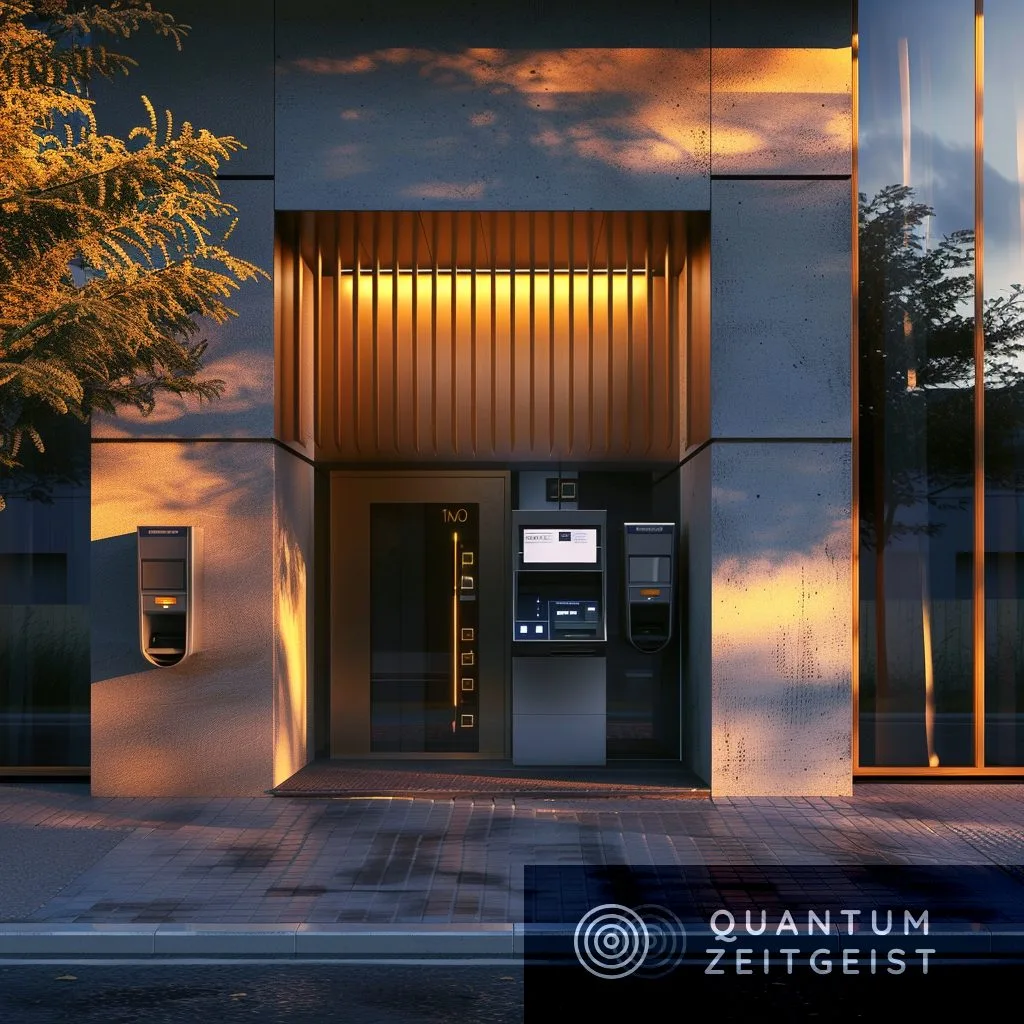Quantum Machine Learning (QML) is being used to enhance credit scoring for small and medium-sized enterprises (SMEs). A hybrid quantum-classical model, which integrates quantum circuits with classical neural networks, has been developed by a team of researchers from various institutions. The model was tested on a real-world classical credit default dataset for SMEs in Singapore, achieving efficient training with significantly fewer epochs than its classical counterpart. Despite some scalability limitations, the model shows potential for practical financial solutions. The exploration of quantum physics in finance, or quantum finance, could transform areas such as option pricing, portfolio optimization, and risk analysis.
What is Quantum Machine Learning for Credit Scoring?
Quantum Machine Learning (QML) for credit scoring is a novel approach that integrates quantum circuits with classical neural networks to enhance credit scoring for small and medium-sized enterprises (SMEs). This hybrid quantum-classical model focuses on the synergy between quantum and classical rather than comparing the performance of separate quantum and classical models. The model incorporates a quantum layer into a traditional neural network, achieving notable reductions in training time.
The model was applied to a binary classification task with a proprietary real-world classical credit default dataset for SMEs in Singapore. The results indicated that the hybrid model achieves efficient training, requiring significantly fewer epochs (350) compared to its classical counterpart (3500) for a similar predictive accuracy. However, a decrease in performance was observed when expanding the model beyond 12 qubits or when adding additional quantum classifier blocks.
Despite certain scalability limitations and practical challenges, the quantum-classical hybrid model for credit scoring reveals its potential in the industry. The model was developed by a team of researchers including Nikolaos Schetakis, Davit Aghamalyan, Michael Boguslavsky, Agnieszka Rees, Marc Rakotomalala, and Paul Robert Griffin from various institutions including the Technical University of Crete, Quantum Innovation Pc, QUBITECH Quantum Technologies, Singapore Management University, and Tradeteq Ltd.
How Does Quantum Computing Impact Finance?
Quantum computing, powered by the quantum revolution, is poised to transform various scientific and industrial fields, including finance. Many real-world problems are impossible to solve on a classical computer due to their resource-intensive nature. Quantum algorithms such as quantum search and quantum Fourier transforms promise significant speed advantages over classical algorithms, sparking a decade-long search for practical applications to harness this potential.
The financial sector emerges as a promising arena for quantum computing. The exploration of quantum physics in finance, dubbed quantum finance, reveals its applicability in areas such as option pricing, portfolio optimization, and risk analysis. Quantum finance leverages quantum computing and quantum machine learning (QML) to address complex financial computations from risk management to market trend analysis, highlighting the field’s potential to unlock the computational power of quantum technologies for practical financial solutions.
However, we are currently navigating the noisy intermediate scale quantum (NISQ) era, grappling with the scalability of qubits to achieve fault tolerance. Despite the challenge of finding real-world problems where quantum computing offers a practical advantage, the potential of quantum finance is undeniable.
What is the Role of Credit Scoring in Finance?
Credit scoring is a crucial financial task with significant economic implications. It facilitates economic expansion by enabling firms to access capital at favorable rates. However, obstacles such as information asymmetries can hinder the flow of capital to deserving projects. While large entities benefit from public credit ratings, smaller firms often lack such assessments, facing challenges in securing credit.
Financial institutions have evolved from relying on qualitative assessments to employing sophisticated quantitative methods for managing credit risk, particularly for products with inherent default risks. Enhancing machine learning (ML) models for credit scoring, particularly for small and SMEs, is an active field of research. The current models, while advanced, exhibit limitations in accurately predicting insolvency, rejecting a significant portion of solvent companies due to error rates.
How Can Quantum Machine Learning Improve Credit Scoring?
The intersection of ML and quantum computing, QML, applied to financial analysis has the potential for significant advancements by leveraging quantum physics principles to accelerate data analysis. This approach not only aims to refine predictive accuracy in financial contexts but also explores the theoretical limits and practical applications of quantum-enhanced data analysis, offering a new frontier in financial technology innovation.
Even modest improvements in these models could substantially reduce erroneous rejections and mitigate risks for lenders. For instance, the best credit scoring models currently reject 90% of companies that do become insolvent but still reject 15% of companies that remain healthy. By leveraging QML, it is possible to refine these models and improve their predictive accuracy.
What are the Practical Challenges of Deploying Quantum Machine Learning Models?
While the potential of QML models is significant, there are practical challenges faced when deploying such models on quantum simulators and actual quantum computers. For instance, the performance of the hybrid model decreases when expanding the model beyond 12 qubits or when adding additional quantum classifier blocks.
These scalability limitations highlight the current challenges of the NISQ era, where the scalability of qubits to achieve fault tolerance is a significant hurdle. Despite these challenges, the exploration and development of QML models for finance continue, with the hope of harnessing the potential of quantum computing for practical financial solutions.
What is the Future of Quantum Machine Learning in Finance?
The future of QML in finance is promising, with the potential to transform credit scoring and other financial computations. Despite the current limitations and challenges, the exploration of heuristic algorithms that excel in certain problem areas through cross-disciplinary insights and domain expertise continues.
The development of the hybrid quantum-classical model for credit scoring is a significant step in this direction, demonstrating the potential of QML in the industry. As quantum computing technology advances and the challenges of the NISQ era are overcome, the application of QML in finance is expected to expand, unlocking new possibilities for financial technology innovation.
Publication details: “Quantum Machine Learning for Credit Scoring”
Publication Date: 2024-05-02
Authors: Nikolaos Schetakis, Davit Aghamalyan, Michael Boguslavsky, A. Rees, et al.
Source: Mathematics
DOI: https://doi.org/10.3390/math12091391

